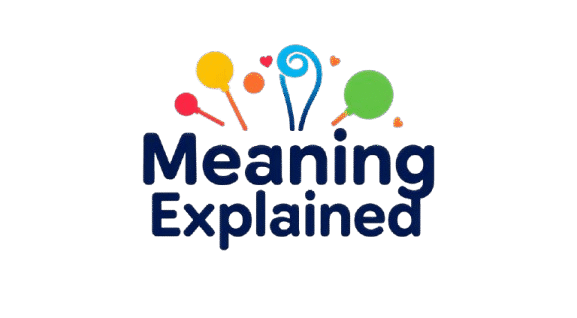The word “anon” might catch you off guard in texts or online chats, leaving you curious about its meaning. It’s a small word with big versatility, used in both old literature and modern internet spaces. This guide breaks down what “anon” means, its origins, and how to swap it with better words for different situations.
In old English, “anon” meant “soon” or “in a bit,” often seen in Shakespeare’s plays. Today, it’s more common online, where it stands for “anonymous,” like on Reddit or 4chan. Knowing which meaning fits helps you use it right or pick a clearer alternative.
Whether you’re writing a formal email, chatting with friends, or posting online, choosing the right word matters. This article covers “anon” in both senses, offers simple alternatives, and shares examples to make your communication clear and natural.
What Does “Anon” Mean?
“Anon” has two distinct meanings, shaped by its historical roots and modern online usage. Understanding these helps you use it or pick better alternatives.
A. Historical and Common Definition
Archaic Use: In old English, especially in Shakespearean works, “anon” meant “soon” or “shortly.” It carried a poetic, slightly formal tone.
- Example: “I’ll see thee anon in the garden.”
Modern Use: Today, “anon” is shorthand for “anonymous” in online spaces like forums or social media, referring to an unidentified user.
- Example: “Anon #789 shared a cool idea.”
B. Two Primary Modern Senses
- Soon/Shortly: Rarely used now, mostly in literary or stylized writing for a vintage effect.
- Anonymous: Common in digital platforms like Reddit or 4chan, where users post without revealing identities.
When “Anon” Means “Anonymous”
In online conversations, “anon” often labels someone posting anonymously.
- Example: “Anon asked, ‘What’s the best game?’”
It’s a casual, friendly term on forums or comment sections but feels out of place in formal writing, where “anonymous” is clearer.
When “Anon” Means “Soon”
Using “anon” to mean “soon” is rare and gives a medieval or poetic vibe.
- Example: “I’ll reply anon.”
This usage suits creative writing but can sound odd in casual or professional contexts. Alternatives like “soon” or “in a bit” are more natural today.
Tone and Context: Choosing the Right Alternatives

The right alternative to “anon” depends on whether you’re conveying anonymity or promptness, and the tone you want—formal, professional, or casual.
A. Replacing “Anon” (Anonymous Meaning)
| Context | Alternatives | Tone & Example |
| Formal/Polite | Anonymous, unknown author | Neutral: “An anonymous donor funded the project.” |
| Professional | User, participant, member | Clear: “A participant gave useful feedback.” |
| Casual/Friendly | Anon, Anon friend, nickname | Warm: “Anon, your tip was awesome!” |
B. Replacing “Anon” (Soon Meaning)
| Context | Alternatives | Tone & Example |
| Formal/Polite | Shortly, in a moment, very soon | Polished: “I’ll address the issue shortly.” |
| Professional | Momentarily, within minutes | Efficient: “The system will restart momentarily.” |
| Casual/Friendly | In a sec, in a bit, brb soon | Relaxed: “I’ll be there in a sec!” |
20Examples of “Anon” and Its Alternatives
Here are varied examples showing “anon” and its alternatives in action:
- Archaic (Soon): “I shall meet thee anon at the feast.”
- Alternative: “I’ll meet you shortly at the feast.”
- Online (Anonymous): “Anon posted a hilarious comment.”
- Alternative: “An anonymous user posted a hilarious comment.”
- Formal (Anonymous): “The survey was completed by an anon source.”
- Alternative: “The survey was completed by an anonymous source.”
- Professional (Anonymous): “Anon feedback improved our plan.”
- Alternative: “Feedback from a member improved our plan.”
- Casual (Anonymous): “Anon, your idea rocks!”
- Alternative: “Anon friend, your idea rocks!”
- Formal (Soon): “I shall respond anon to your letter.”
- Alternative: “I’ll respond to your letter shortly.”
- Professional (Soon): “The update will be ready anon.”
- Alternative: “The update will be ready momentarily.”
- Casual (Soon): “I’ll be there anon, wait up!”
- Alternative: “I’ll be there in a sec, wait up!”
- Expressive (Soon): “I’ll arrive anon with gifts!”
- Alternative: “I’ll arrive in a jiffy with gifts!”
- Friendly (Soon): “Anon, I’ll join the chat.”
- Alternative: “I’ll join the chat in a minute.”
- Cheerful (Soon): “I’ll call thee anon!”
- Alternative: “I’ll call you in a bit!”
- Online (Anonymous): “Anon #123 solved the puzzle.”
- Alternative: “User #123 solved the puzzle.”
- Formal (Anonymous): “An anon tip led to the discovery.”
- Alternative: “An unknown author’s tip led to the discovery.”
- Professional (Anonymous): “Anon input shaped the policy.”
- Alternative: “Input from a participant shaped the policy.”
- Casual (Anonymous): “Anon, why so serious?”
- Alternative: “Nickname, why so serious?”
- Formal (Soon): “The meeting shall commence anon.”
- Alternative: “The meeting will commence very soon.”
- Professional (Soon): “The system will reboot anon.”
- Alternative: “The system will reboot within minutes.”
- Casual (Soon): “I’ll text you anon, busy now!”
- Alternative: “I’ll text you in a bit, busy now!”
- Expressive (Soon): “Anon, I’ll bring the snacks!”
- Alternative: “I’ll bring the snacks in a flash!”
- Friendly (Anonymous): “Anon, you’re a legend!”
- Alternative: “Anon friend, you’re a legend!”
Tone Nuances and Context Insight

- Anonymous Tone: “Anonymous” is neutral and professional, ideal for reports or official settings.
- Online “Anon”: Feels friendly and informal, perfect for forums or chats.
- Archaic “Anon”: Adds a poetic, old-world charm, best for creative or historical writing.
- Promptness Alternatives:
- Formal: Precise and clear (e.g., “shortly”).
- Casual: Warm and relaxed (e.g., “in a sec”).
Tips for Choosing the Best Alternative
- Identify Meaning: Is “anon” about anonymity or time?
- Know Your Audience: Use clear terms like “anonymous” for formal readers; “Anon” works online.
- Match Tone: Be playful in chats, direct in business.
- Ensure Clarity: Avoid “anon” if it might confuse; opt for “anonymous user” or “very soon.”
FAQs
What does “anon” usually mean today?
It’s typically “anonymous” in online chats or forums, referring to users without visible identities.
Can I still use “anon” to say “soon”?
Yes, but it feels old-fashioned and is better for poetic or creative writing.
Is “anonymous” better than “anon” in professional writing?
Yes, “anonymous” is clearer and more polished for formal or professional contexts.
What casual options fit best in a group chat?
For anonymity, use “Anon.” For time, try “in a sec” or “in a bit.”
Could using “anon” be confusing?
Yes, if the context isn’t clear. Use specific terms like “anonymous” or “soon” to avoid confusion.
Conclusion
The word “anon” carries two meanings: “soon” in old, poetic texts and “anonymous” in today’s online world. Its versatility shines in creative writing or casual chats, but it can confuse if the context isn’t clear. Choosing alternatives like “anonymous” or “shortly” ensures your message is precise and fits the tone.
By understanding “anon” and its uses, you can communicate effectively in any setting. For formal writing, use clear terms like “anonymous” or “in a moment.” In casual chats, “Anon” or “in a sec” keeps things friendly and natural.

